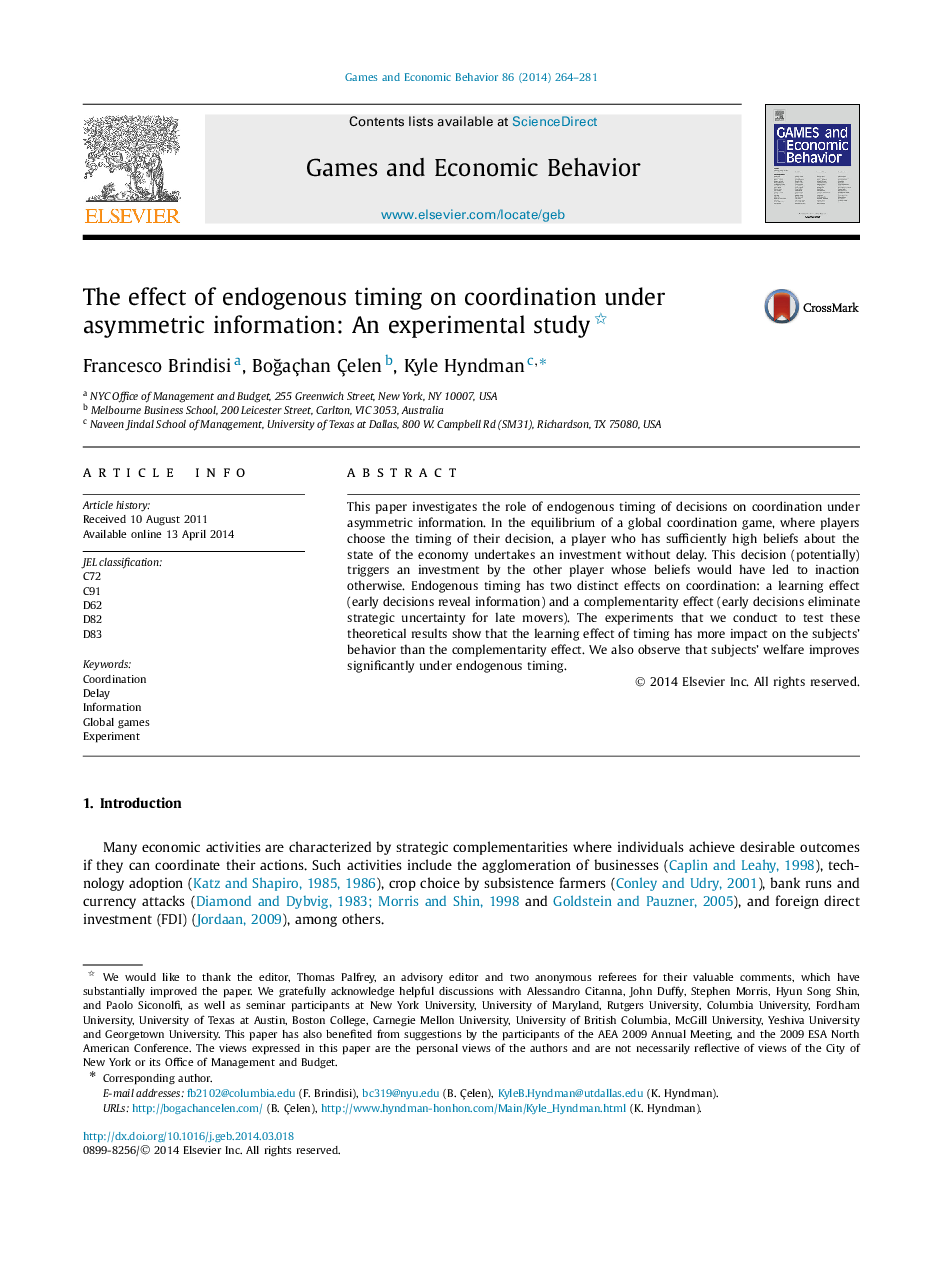| Article ID | Journal | Published Year | Pages | File Type |
|---|---|---|---|---|
| 5071704 | Games and Economic Behavior | 2014 | 18 Pages |
Abstract
This paper investigates the role of endogenous timing of decisions on coordination under asymmetric information. In the equilibrium of a global coordination game, where players choose the timing of their decision, a player who has sufficiently high beliefs about the state of the economy undertakes an investment without delay. This decision (potentially) triggers an investment by the other player whose beliefs would have led to inaction otherwise. Endogenous timing has two distinct effects on coordination: a learning effect (early decisions reveal information) and a complementarity effect (early decisions eliminate strategic uncertainty for late movers). The experiments that we conduct to test these theoretical results show that the learning effect of timing has more impact on the subjects' behavior than the complementarity effect. We also observe that subjects' welfare improves significantly under endogenous timing.
Related Topics
Social Sciences and Humanities
Economics, Econometrics and Finance
Economics and Econometrics
Authors
Francesco Brindisi, BoÄaçhan Ãelen, Kyle Hyndman,
